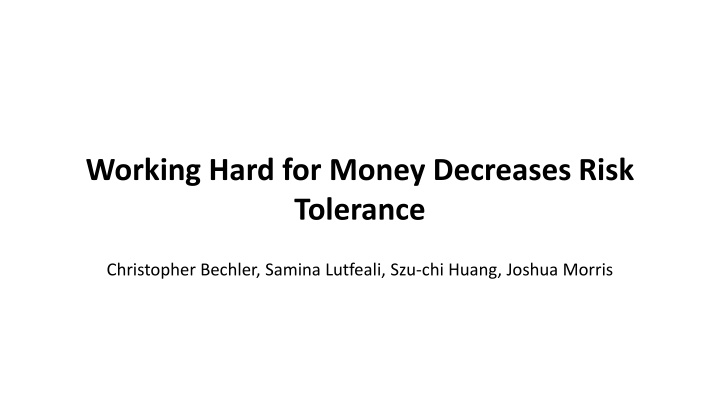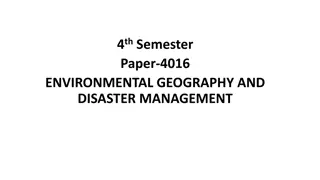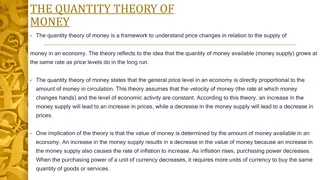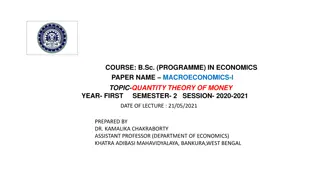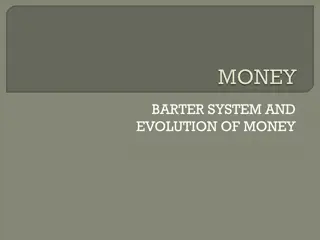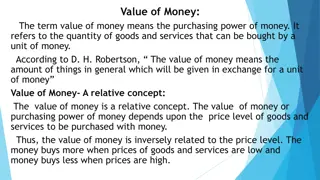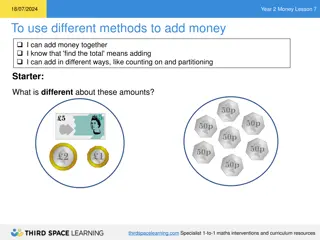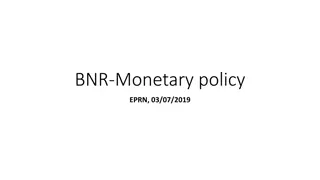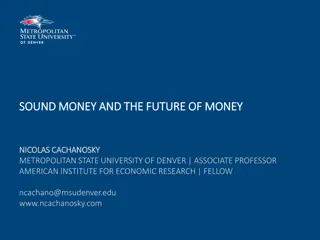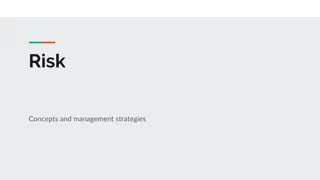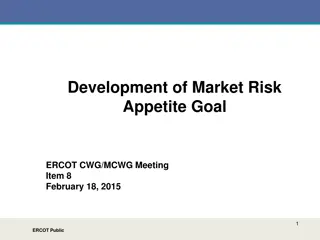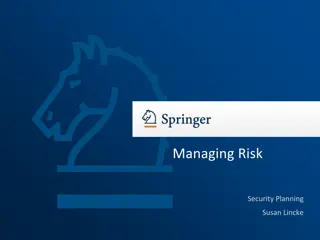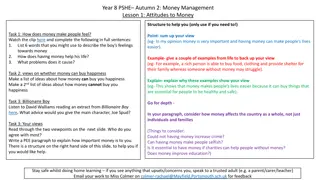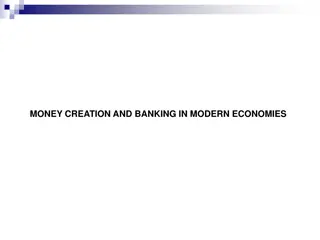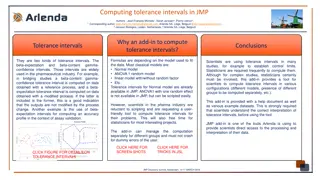Working Hard for Money Decreases Risk Tolerance
Examining how working harder for money affects individuals' willingness to invest, this study reveals that increased effort can lead to reduced risk tolerance, potentially hindering wealth accumulation. Participants tasked with earning money through varying levels of effort exhibited a decreased inclination to invest, highlighting the psychological factors influencing financial decisions.
Download Presentation

Please find below an Image/Link to download the presentation.
The content on the website is provided AS IS for your information and personal use only. It may not be sold, licensed, or shared on other websites without obtaining consent from the author.If you encounter any issues during the download, it is possible that the publisher has removed the file from their server.
You are allowed to download the files provided on this website for personal or commercial use, subject to the condition that they are used lawfully. All files are the property of their respective owners.
The content on the website is provided AS IS for your information and personal use only. It may not be sold, licensed, or shared on other websites without obtaining consent from the author.
E N D
Presentation Transcript
Working Hard for Money Decreases Risk Tolerance Christopher Bechler, Samina Lutfeali, Szu-chi Huang, Joshua Morris
Motivation Over the last few years, many people had to work harder than before for the same pay. Example 1: Teachers had to figure out how to manage classrooms over zoom. Example 2: Surveys suggested that many people were working more hours from home but were not being paid any more for the additional effort (Osborne, 2021). We were curious about how the effort required to earn money impacts how people invest.
The Consumer Psychology Problem Taking prudent risks (e.g., investing in stocks/mutual funds), is important to meet long-term financial goals. Greater risk = greater return Securities and Exchange Commission, n.d.; Markowitz, 1952 But, not everyone invests. In fact, a lower percentage of U.S. consumers own stocks than in the early 2000s (Saad & Jones, 2022).
Research Question Can the amount of effort that consumers exert to earn money be one reason why they don t invest (or underinvest)? If working harder for money causes consumers to feel more ownership over their earnings and value them more Then they might be less willing to risk losing these earnings (i.e., less willing to invest them). If true, consumers could accumulate less money overall when they work harder because they invest less (and subsequently end up with lower returns).
Relevant Method and Study Information Utilized a unique experimental paradigm where consumers experienced multiple rounds of a microcosmic financial cycle. In each round, participants completed an earnings task. After completing the task, participants chose whether and how to invest their earnings. Investment Choice Earning Task Rounds varied in the amount of effort required to earn. For example, participants pressed the s key on their keyboard 10, 200, or 400 times. As in the real world, higher-risk investments were associated with higher returns.
Key Results When consumers worked harder for money (e.g., when people had to press the s key 400 vs 200 times), they felt more ownership over their earnings and valued them more. As a result, when consumers worked harder for their money, they were less willing to invest it, even when the investment led to positive expected returns. Therefore, working harder lead people to build less wealth (be paid less in the experiment).
Consumer Psychology Takeaways (Part 1) Correlationally, people who tend to work harder also tend to invest more: A recent survey of 27,091 Americans documents a positive relationship between consumers self-reported effort to earn and investment risk tolerance (FINRA, 2018). However, this research demonstrates that more effortful earning causally leads consumers to invest less and in less risky options. This is an example of Simpson s paradox a statistical phenomenon where a relationship between two variables disappears or reverses when controlling for groups, or subpopulations (in this case, individuals).
Consumer Psychology Takeaways (Part 2) The COVID-19 pandemic, high inflation, and low wage growth have forced consumers to work even harder to earn than before. However, working harder to earn may undermine their investment decisions. Policymakers must be mindful of the potentially negative consequences of escalating consumers perceptions of effortful earnings.
Author Contact Information Christopher Bechler: cbechler@nd.edu Samina Lutfeali: saminal@stanford.edu Szu-chi Huang: huangsc@stanford.edu Joshua I. Morris : jimorris@stanford.edu
